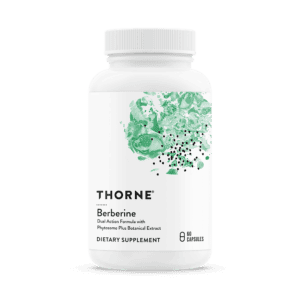Terrifying Facts of Poor Sleep and 25 Ways to Overcome Them
Home »
Frightening facts about sleep deprivation
If your biggest concern about sleep deprivation is feeling tired, you might be in for a shock.
Because, unfortunately, there are many more negative consequences for your health and performance if you don’t get enough sleep.
The good news is, you can prevent most of them – and we’re going to show you how.
Do you have healthy sleep habits?
A great starting point to improving your sleep is to assess your current habits.
Ask yourself:
- Do you have trouble falling asleep at night?
- Do you have difficulty waking up in the morning?
- Do you sleep for fewer than 8-9 hours a night?
- Do you wake up once or more during the night?
- Do you sleep in a room with any light or noise (electronic devices)?
- Do you wake up feeling tired?
- Do you wake up with an alarm?
- Do you go to bed after 11:00 pm?
- Do you get up earlier than 6:00 am?
- Do you use medications for sleep?
Did you answer ‘yes’ to any of these questions?
If so, you’re exposing yourself to a multitude of health and performance risks.
Sleep loss significantly harms your body’s performance
 Bad things happen to your body when you don’t sleep. Here are some frightening facts about sleep deprivation that might surprise you:
Bad things happen to your body when you don’t sleep. Here are some frightening facts about sleep deprivation that might surprise you:
Symptoms of depression linked to sleep deprivation
For every hour of sleep that you miss at night, you face the following…
Additionally, going to sleep late most nights and not waking up until the afternoon could be a sign that you have Delayed Sleep Phase Syndrome.
This type of circadian rhythm sleep disorder can result in an increased risk of developing insomnia or depression.
Sleep deprivation can cause high blood pressure
Not getting enough sleep can cause Hypertension (high blood pressure). But it also lowers your testosterone levels, raises your bad cholesterol and can lead to insulin resistance (diabetes).
- Hypertension studies have revealed:
- depriving healthy subjects of sleep has been shown to acutely increase blood pressure and sympathetic nervous system activity
- sleep durations of 5 hours per night were associated with a significantly increased risk of hypertension in subjects between the ages of 32 and 59 years
Sleep deprivation increases insulin resistance and your urge to EAT!
- Sleep deprivation can increase your body fat and lead to insulin resistance (diabetes).
According to Annals of Internal Medicine
‘Sleep restriction results in an insulin-resistant state in human adipocytes.’
Adipocytes are cells responsible for storing energy as fat.
Lack of sleep:
- Diminishes the production of Leptin – the hormone responsible for telling you that you’re full.
- Boosts production of Ghrelin – the hormone that signals hunger and tells you it’s time to eat.
According to one study, sleeping for 1 hour less than usual can make you eat up to 45% more food.
Staying awake for long periods affects your body in the same way as drinking alcohol.
Studies have shown that:
- 17-19 hours without sleep is the equivalent of a 0.05 blood alcohol level
- 21 hours without sleep equates to 0.08 blood alcohol level, which is legally drunk
So, if you drive when you’re sleep-deprived, it’s like driving drunk.
With fewer than 5 hours of sleep a night, health risks have been shown to increase to a:
- 25% increased risk for diabetes
- 45% increased risk for heart attack.
A study of teenage student-athletes revealed that getting more sleep reduced the risk of sports injuries:
- those sleeping at least 8 hours per night were 68 % less likely to experience injuries than those sleeping fewer than 8.
Interruptions to your circadian rhythms, like jet lag or shift work led the World Health Organisation (WHO) to consider them probable human carcinogens.
- A significant problem is exposure to light at unusual times as this can shift the internal clock in the wrong direction.
- Jet lag symptoms are usually experienced if you cross three or more time zones. Generally, the more time zones crossed, the worse the symptoms and the longer they persist.
- Symptoms appear within a day or two of being in the new time zone and typically include disturbed sleep, impaired functioning and decreased alertness.
- Research on athletic performance and the direction of trans-meridian travel show that going east leads to greater DECREASE in performance than going west.
A decrease in sleep leads to an increase in cortisol and mania ‘The increase of serum cortisol level is significantly related to mania disorder during sleep deprivation.’
Reduced sleep speeds up ageing!
It’s called beauty sleep for a reason. When you don’t get enough sleep, your skin pays the price. Your cortisol levels increase, which breaks down the collagen in your skin. Collagen is an essential component of your skin the keep it elastic and smooth.
25 TOP TIPS FOR BETTER SLEEP
Now you have insight into the harm sleep deprivation causes, here are some of my top tips to help you develop better, healthier sleep habits.
1. Keep a sleep Diary to track your sleep patterns
I talked about how to keep a sleep diary in my blog, ‘Why better sleep will boost your health and performance’. You can use your results to analyse your current behaviors and discover areas to target for improvement. Then you can start implementing positive change.
2. Sleep in complete darkness
- Take all your electronic devices out of the bedroom – if it plugs into an outlet or runs on a battery, it doesn’t belong there.
- Black out all remaining light sources – tape over any light, no matter how small.
- Get rid of your alarm clock – especially if you have one that displays the time in the dark.
- Use a sleep mask.
3. Develop and maintain a sleep routine
Aim to get to bed and wake up around the same times each day. Yes – even on the weekend or on holiday. Long sleep-ins on the weekend to catch up on sleep make your body clock think you are jet-lagged. The negative effects can last for days. Getting up at a similar time every day can prevent this. When your body gets into a routine, it makes it easier to fall asleep at the right time.
4. Reduce stress
As far as possible, identify your stressors and knock them off. They’re different for everyone, but frequently include:
- Pain
- Work Overload
- Relationships
You might need social or professional support to bring about change – you don’t have to go it alone. YOU ARE YOUR THOUGHTS – learn how to practice thought management – there are Apps that can help you with this.
5. Set up a morning reward
Set your morning up for success and organise something to look forward to upon waking!
- Call a friend you love talking to.
- Get outside and go for a walk or run.
- Stock up on the ingredients for your favourite breakfast.
- Book a morning PT session.
6. Use sleep aids
Sleep aids can help you prepare for sleep.
f.lux Software Makes the colour of your computer’s display adapt to the time of day, warm at night and like sunlight during the day.
Get the Twighlight APP This app harmonizes your screen to suit the time of day.
REMEMBER: If you have to read at night, red and yellow light is best.
7. Bed – sleep and sex only
Try not to use your bed as a place to watch TV, eat, read, work on your laptop, pay bills or other tasks. If you only use your bed for sleeping or sex, your body learns to associate bed with these activities – nothing else.
8. Eliminate irregular noise
Your brain registers and processes sound while you’re sleeping. Use earplugs, noise cancellers, or simple white noise to block out unwanted sounds.
9. Use white noise
White noise will help you fall and stay asleep. Anything that makes a constant sound can do the trick – a fan, humidifier or heater. You can also find a range of ambient soundtracks on apps or other music streaming platforms such as Spotify or iTunes. From waves to rainfall or waterfalls, you can choose what works best for you. But remember – make sure light from your device is not visible.
10. Sleep on the left side
If you sleep on your left side, you’re less likely to experience interrupted sleep. The position of your internal organs and digestive system means sleeping on your left side can improve heart circulation and reduce heartburn and acid reflux.
11. Brain dump in the morning
Declutter your mind by emptying your brain earlier in the day. If you have things you need to work on or feel stressed about – get them out of your head. Or get them over and done with early in the day.
12. Gratitude log at night
Complete a gratitude log each night before bed and reflect on all the things you feel grateful for.
13. Breathing/relaxation techniques:
Practice breathing exercises before you go to sleep –
Inhale Exhale
3 6
4 8
6 12
Or, try the progressive muscle contract and relax technique.
14. Room temperature
Try to maintain a room temperature of between 18-21 degrees Celsius. When your core temperature drops, it’s a trigger for your body to sleep.
15. Enjoy an Epsom salt bath
Relax before bedtime by soaking in an Epsom salt bath.
16. Keep your bedroom free of clutter
Only keep items in your bedroom that you love, and that bring you happiness or peace.
17. Love your pet don’t sleep with them
30% of pet owners who sleep with their fluffy companion report waking up at least once a night. In addition, 63% had poor sleep quality.
18. Have a pre-sleep routine
Adopt a routine that sets your body up for sleep. This could include any or all of the following:
- Soft music
- Shower
- Stretch
- Grateful Log/Brain Dump
- Lights out
19. Eat well
Avoid inflammatory foods as these can cause:
- Pain
- Sleep apnea
- Snoring
Cut out sugary foods, especially before bed.
20. Avoid sleep medications
Sleep medications offer sedation, not sleep. While they can help you in the short term, they also some potential side effects and may not give you good quality sleep. Your body can also get used to these medications quickly, so they become ineffective.
21. Drink coffee but not after 12PM –
Caffeine has a half-life of 5.7 hours. This means that if you consume 200mg of caffeine at midday, you would still have 100mg in your system at around 5.45 pm. By 10 pm, caffeine levels are still at over 50mg.
Adenosine receptors in the brain play a role in the sleep-wake cycle.
Adenosine is what makes you sleepy – caffeine blocks it.
22. Avoid alcohol before bed
Alcohol can act as a relaxing, sedative agent when consumed just before sleeping.
But, it can also lead to night-time awakening due to sympathetic activation. This does not return to baseline levels until the blood alcohol levels have returned to zero. It blocks dreams and REM sleep.
23. Exercise during the day – avoid late-night exercise
Exercise during the day is excellent. But, try not to exercise within 2 hours of going to bed and avoid late-night exercise.
24. Foods that improve sleep quality –
Tryptophan ➡️ Serotonin ➡️ Melatonin
Tryptophan is the precursor to Serotonin. At night, Serotonin undergoes two metabolic changes to become Melatonin, the chemical that induces sleep.
What is melatonin?
It’s a hormone that helps to regulate the body’s circadian rhythm and promotes restful sleep.
Make a conscious choice to eat foods that aid sleep, such as white meats, turkey, sirloin steak, chicken. Plus, a small portion of carbs. Cherries are also great for Melatonin production.
25. Use quality sleep supplements
At Shredded, we only recommend the best sleep supplements.
Our top 3 to support better sleep are:
REST EASY
Now you know both the risks of poor sleep habits and the steps you can take to overcome them, you can take action.
By introducing new behaviors, you’ll form healthier habits. So, you can rest easy knowing you’re managing your sleep, your health and your performance.
Article By Kelly Martinovich with a special thanks to Dr Bob Rakowski for the awesome studies.
Turn Your Goals into Reality! Contact Us today

Shredded APP
Book into classes, manage your membership, passes, book our private recovery spaces and MORE! All you need to do is download and log in to the Shredded App!
Meet the team
At Shredded, we take care of our coaches so they can take care of you. Our team is on hand to support you while you train and help you as you progress towards your goals.































